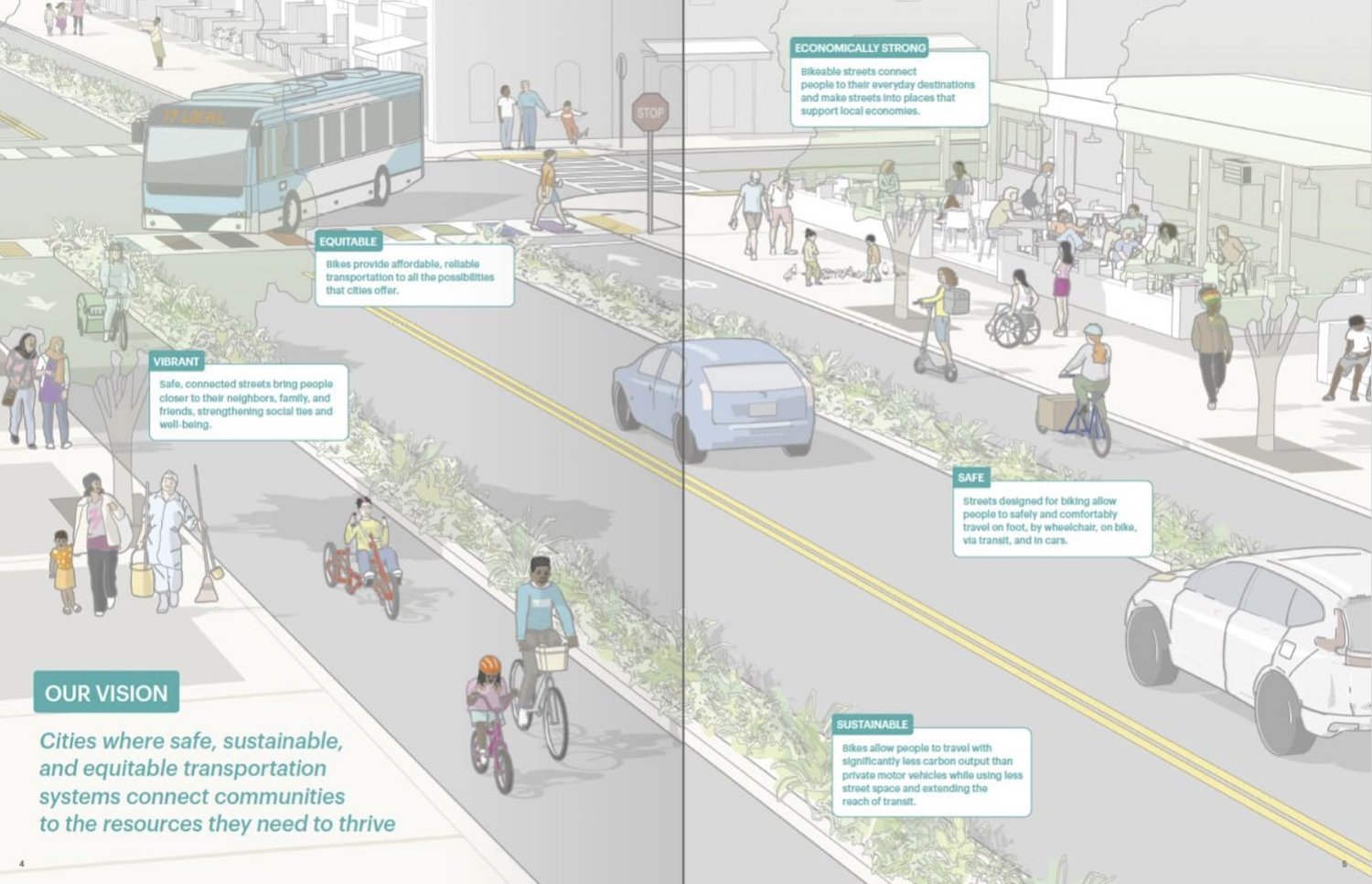New Orleans’ SS4A Plan: A People’s Vision for Safe Streets
The City of New Orleans has unveiled its Safe Streets for All (SS4A) Safety Action Plan, a document that—on its surface—presents a hopeful, if overdue, commitment to ending traffic violence in our communities. Spearheaded by the Office of Resilience and Sustainability, the Department of Public Works, and the Health Department, the plan recognizes a bitter truth: in just five years, 297 people have been killed and over 47,000 injured on the city's roadways.
That is a staggering toll. These are not merely numbers; they represent our community members. These are not accidents but outcomes—of a transportation system designed around cars, speed, and profit, rather than people, care, and justice.
The SS4A plan embraces the Safe Systems Approach, a framework that acknowledges that human beings make mistakes and that streets should be designed to prevent those mistakes from becoming deadly. The six principles it outlines—especially that “death and serious injury are unacceptable” and “responsibility is shared”—are refreshingly humanist in language. But as bicycle advocates in the Critical Mass movement, we must ask: who truly shares that responsibility? And who, for decades, has borne the brunt of our city’s transportation neglect?
Planning or Platitudes?
The plan promises to combine crash data, predictive modeling, and community input to shape a new strategy for safe roads. These are good steps. But we must be clear: no amount of data can replace grassroots political will, and no number of public meetings can substitute for direct community power.
For too long, New Orleans’ streets have been dictated by unaccountable planning bureaucracies and commercial interests—from oil corporations and the auto industry to real estate developers and police/fire departments. The result is a city where pedestrians, transit riders, and cyclists are routinely pushed to the margins—both physically and politically.
To this end, the Safe Streets for All action plan is asking for your input. On their webpage, they have a community survey and an interactive map. Your voice will help shape a Safety Action Plan that prioritizes safe and comfortable transportation options for every New Orleanian. Take the brief survey and add your locations of concern using the buttons below. The surveys will close June 20, 2025.
While the SS4A document mentions “collective responsibility,” it is incumbent upon bicycle advocates to acknowledge and point out the structural causes of traffic violence: decades of disinvestment in our neighborhoods, lack of affordable and consistent transit, and an infrastructure system built to serve the needs of cars—not people and communities.
A Demand for Democracy
At Critical Mass NOLA, we don’t just ride bikes—we ride for justice. We ride to reclaim public space from private domination. We ride to challenge the culture of automotive supremacy and its consequences: death, pollution, and displacement.
We believe that traffic safety cannot be achieved by passive planning alone. It must come from the ground up, through organized communities demanding democratic control over how our streets are designed, who they serve, and what kind of future they make possible.
We support any honest effort to reduce harm. Let us help push the SS4A plan further than platitudes. It must commit to:
Deprioritizing car traffic and removing police as the default enforcers of transportation rules.
Investing in physical street redesigns, especially protected bike lanes and pedestrian-first infrastructure.
Establishing public transparency and accountability mechanisms, including participatory budgeting for street improvements.
This is not just about safety. It’s about liberation—from a transportation system that treats the lives of pedestrians and bicyclists as disposable.
Toward Safe Streets—For All of Us
The SS4A plan is a great beginning. But let us ride and be vocal about what safe streets should look like. Safe Streets in New Orleans must include an integrated, citywide network of connected, separated bike lanes. The rights of people—not cars—must shape our city’s Complete Streets Ordinance.
A "Safe Streets for All" vision must stop building for convenience and start building for care. That means listening not just to consultants, but to movements. Critical Mass NOLA rides in the name of that movement. For justice, for safety, for freedom on two wheels. Because democracy doesn’t end at the ballot box—it rides in the streets.
—Eric Gabourel
Stay up to date with my musings by following me on Instagram at @le_comte_des_bicyclettes




